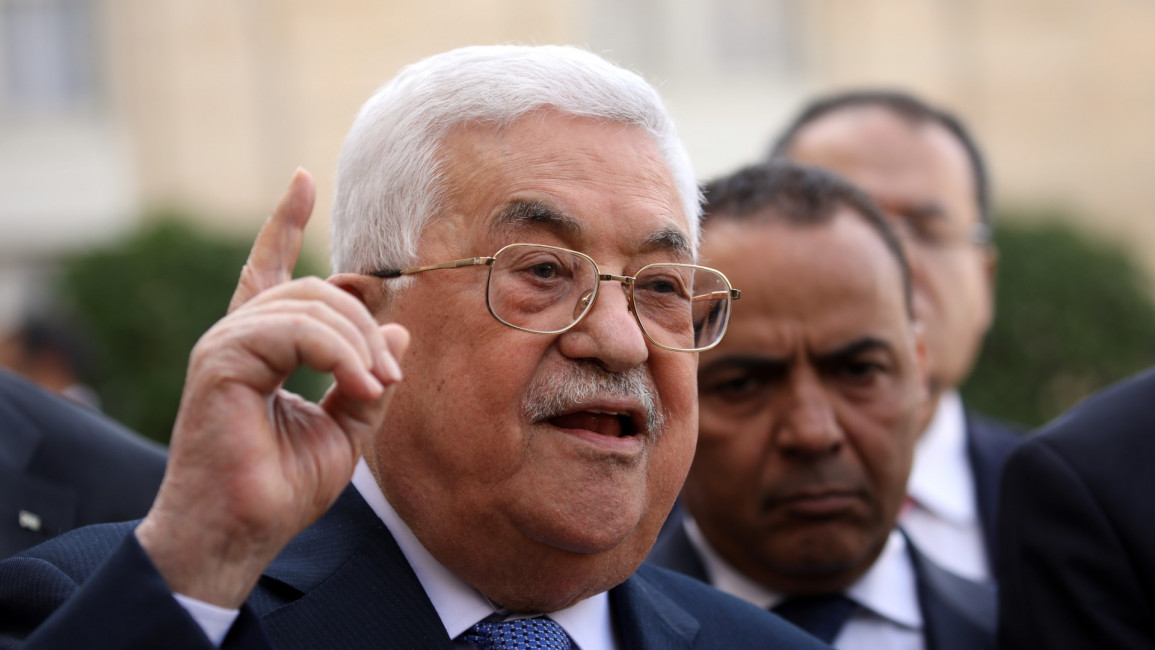Palestinian polls postponed until Jerusalem voting guaranteed: Abbas
Addressing a meeting of Palestinian factions, Abbas said he had urged the international community to push Israel to allow campaigning and voting in east Jerusalem, an area annexed by the Jewish state in 1967 which Palestinians claim as their future capital.
But Abbas said the vote could not go ahead because Israel had provided no assurances regarding Jerusalem ahead of the legislative and presidential polls - called for May 22 and July 31 respectively.
"We decided to postpone the election until there is a guarantee on Jerusalem," the 85-year-old Palestinian leader said.
Palestinians in the Israeli-occupied West Bank and blockaded Gaza Strip have voiced hope that elections after a 15-year wait could help repair their fractured political system.
The polls were called following an agreement between Abbas's secular Fatah movement, which controls the West Bank and its long standing rival Hamas, which runs the Israeli-blockaded Gaza Strip.
Hamas said Wednesday that it would reject "any attempt to postpone the elections".
A delay risks inflaming tensions in the politically fractured Palestinian society and protesters in Ramallah swiftly denounced Abbas's move.
"We have an entire generation of young people that doesn't know what elections mean," protester Tariq Khudairi told AFP.
"This generation has the right to elect its leaders," he said.
Abbas critics have charged that he would use the Jerusalem issue to buy time as Fatah's prospects have been threatened by splinter factions.
Hamas, considered a terrorist group by most Western state, was seen as better organised than Fatah and well placed to gain ground the West Bank.
Twitter Post
|
Abbas also has faced challenges from Fatah splinter factions, including one led by Nasser al-Kidwa, a nephew of iconic Palestinian leader Yasser Arafat, and another by a powerful, exiled former Fatah security chief, Mohammed Dahlan.
'Nonsense'
During the last Palestinian election, east Jerusalem residents cast ballots on the outskirts of the city and thousands voted in post offices, a symbolic move agreed to by Israel.
Israel's foreign ministry said this week that elections were "an internal Palestinian issue, and that Israel has no intention of intervening in them nor preventing them".
But it made no comment on voting in Jerusalem, the city it describes as its "undivided capital" and where it now bans all Palestinian political activity.
Abbas told PLO leaders that he had received a message from Israel saying it could not offer guidance on the Jerusalem issue because the Jewish state currently had no government.
Israel is itself mired in its worst ever political crisis, with no government yet formed following inconclusive March 23 elections.
Abbas dismissed the Israeli message as "nonsense."
Speaking to reporters before Friday's announcement, Palestinian journalist and Abbas critic Nadia Harhash said using Jerusalem to justify postponement "is definitely not a smart move for the PA".
Harhash, an election candidate in anti-Abbas faction, argued it would give Israel de facto veto power over the Palestinian right to vote.
Hamas said a delay amount to a surrender to "the (Israeli) occupation's veto".
Tensions in Jerusalem surged at the weekend as Israeli police launched fierce attacks against Palestinians over the right to gather in an Old City plaza after evening Ramadan prayers.
Following several days of unrest that left dozens injured, Israeli police removed the barricades blocking the staired plaza at Damascus Gate, allowing Palestinians to resume their gatherings.
Read also: Abbas's Palestinian election theatre
Hamas said such "heroic victories" should encourage Palestinians to press ahead with Jerusalem voting. Factions
But heavier clashes resumed on Thursday following Abbas's announcement, with two people were arrested, Jerusalem police said.
The elections have been seen in part as a unified effort by Hamas and Fatah to bolster international faith in Palestinian governance ahead of possible renewed US-led diplomacy under President Joe Biden, after four years of Donald Trump that saw Washington endorse key Israeli objectives.
Analysts argued that Abbas had hoped the elections would allow Fatah and Hamas to continue sharing power, but felt threatened by the emergence of strong splinter factions and the rise of new groups critical of his leadership.
The main challenges to Abbas include the "Freedom list" headed by Kidwa, which has been endorsed by Marwan Barghouti, a popular leader serving multiple life sentences in Israel prison.
Ex Fatah security chief Dahlan, who poses another threat, has been credited with bringing coronavirus vaccines into Gaza and distributing financial aid across the enclave, as well as in the West Bank.
Agencies contributed to this report.
Follow us on Facebook, Twitter and Instagram to stay connected



